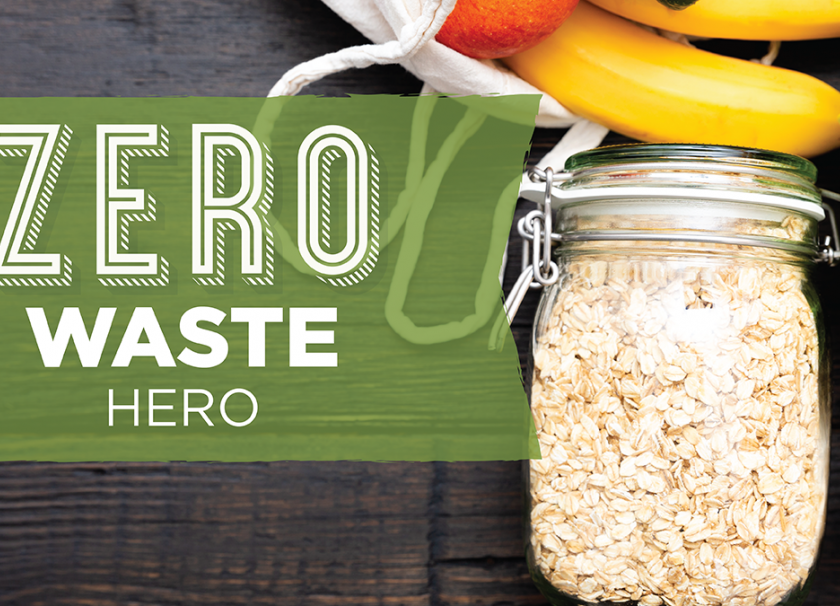
Tips for a Sustainable Kitchen
By Mahlea Rasmussen, Education Coordinator
Outside of work I spend a lot of time in the kitchen. I find it a soothing space to create nourishing meals and lasting memories. I find it essential to be as eco-friendly as possible and a few changes can transform your kitchen into a sustainable center of your home.
The choices begin with shopping for your food. It is important to stay organized so you don’t end up over-shopping or purchasing items you already have. This can lead to food waste - the USDA found that Americans on average each waste a pound of food per day. To avoid this, create a list on a chalkboard or white board and take a photo, so you know just what to purchase.
Don’t shop when your hungry. Although all of us have been there and heard this before, we are much more likely to purchase unnecessary items when our tummies are doing the talking.
Leave your reusable tote bags in the car, so you don’t leave them at home. After unloading your goods, run out to the car one more time and throw your bags in the back seat. That way you won't be caught without them next time you hit the market. Some estimates put the average 'lifespan' of a plastic bag at just 12 minutes.
Shop in the bulk and produce departments to avoid packaging and bring your own containers. The beautiful thing about bulk is that it goes far beyond food items: shampoo, dishwashing detergent, pet food and more are available. Because you can bring your own containers to fill, you're skipping the single-use packaging that many products on the shelf come in.
When shopping for produce, I choose a bag made from recycled plastic bottles available for $0.50 in our produce department. For dry goods, a muslin cloth bag is also available for the same price. For flours and liquids, I bring my own glass jars and bottles.
Shopping for herbs and spices with your own containers is especially advantages as you can save as much as 95% on the goods you buy. Remember: every time you purchase an item in a container, part of the cost is paying for the container itself.
At home some other ways to make your kitchen more sustainable is by growing your own herbs and making your own products. This doesn’t have to be overly time consuming. Herbs, rosemary, oregano and thyme are easy to grow and require minimal time.
Having a stock container in your freezer can significantly reduce your waste and save you money. Most vegetable scraps can be used such as carrot ends, celery and onion. After boiling the stock vegetables you can compost them as long as there is no meat product or oil used.
Replace soft drinks with infused water you make at home. Fill a pitcher with refreshing citrus, mint or cucumber. Not only is this good for your budget, but it's good for your waistline by reducing unnecessary sugar intake.
Another item found commonly in kitchens and easily eliminated is paper towels: it’s easy to sub in some worn out, clean t-shirts and cloth napkins.
And finally, when you're serving dinner, create smaller plates. Those who are hungry can always go back for more, but you will end up throwing out less uneaten food.
The benefits of a zero waste kitchen go beyond the trash compactor. You will find yourself saving money and eating clean. “The zero waste lifestyle is not about complicating your life; it’s about simplifying.” - Bea Johnson.
More Co-op News
Nourish Your Family and Fight Hunger
The holiday season is upon us. Amidst the shopping frenzies, family gatherings, and parties it can be hard to remember this is also a season of giving. That’s why we want to make it easy for you to give back. So easy that it’s as simple as doing your everyday grocery shopping. You can nourish your own family and help fight hunger in the Rogue Valley.
For the month of November, we are once again teaming up with Smart Chicken® for the Smart Chicken® Smart Giving program.
Here’s how it works.
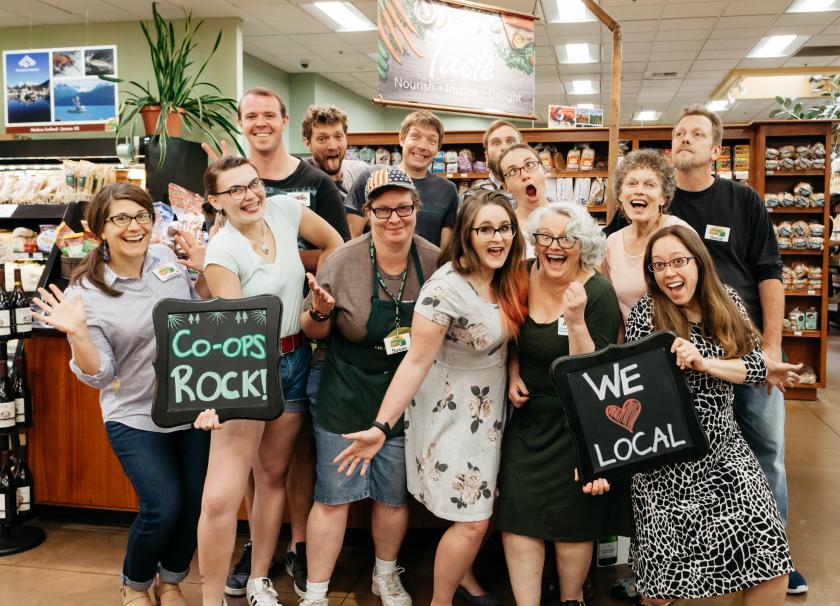
5 Reasons to Love Co-ops
By Laura Pfister, Media Coordinator
October is National Co-op Month, so what’s the big deal? Being a co-op is special. Yes, we know we are biased, but being a cooperative enterprise means we do business differently. We don’t have a single owner living on their private island drinking margaritas all day without a care in the world. We are owned and governed by you, our 10,000 members. We share the burden in hard times and share the benefits in the good times. We put people, the planet and our principles before profit.
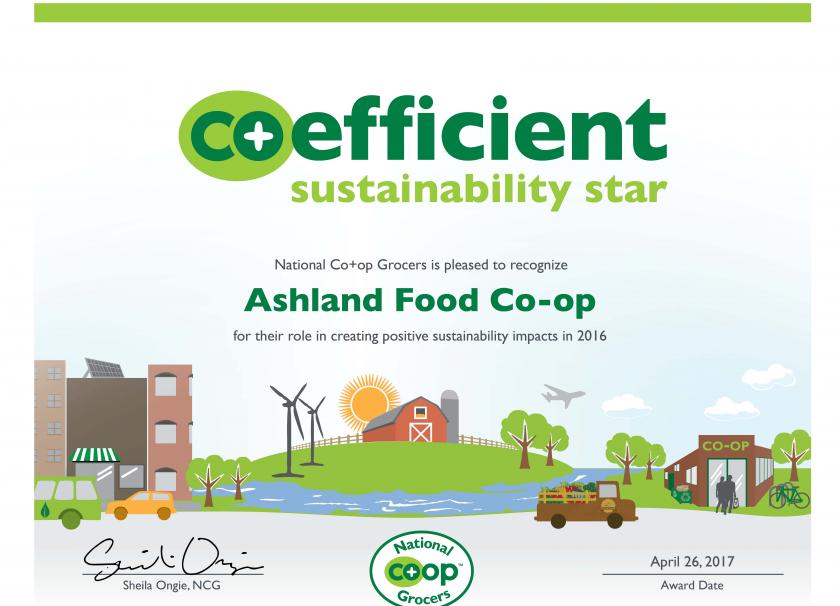
From the General Manager's Desk
By Emile Armarotico
This spring, National Co-op Grocers recognized Ashland Food Co-op as a Co+efficient Sustainability Star for our excellent sustainability efforts.
Our Sustainability Vision aims at being carbon neutral by 2030. We’ve taken a great stride toward this by installing a 39 kilowatt solar electric system on our rooftop with the capacity to generate approximately 7% of our electricity usage. The cost was partially offset by a $27,000 REAP (Rural Energy for America Program) Grant.
Local Starts at the Co-op
When we say local, we mean local. We source our local goods from within 200 miles of the store. By purchasing goods from local producers, we aim to create and maintain a healthy local economy and support family farms. What could be better than helping your community by buying local goods?
With all the local products that we offer, it’s hard to pick a favorite. But that’s exactly what we asked our staff to do. Here are some of their go-to local eats.
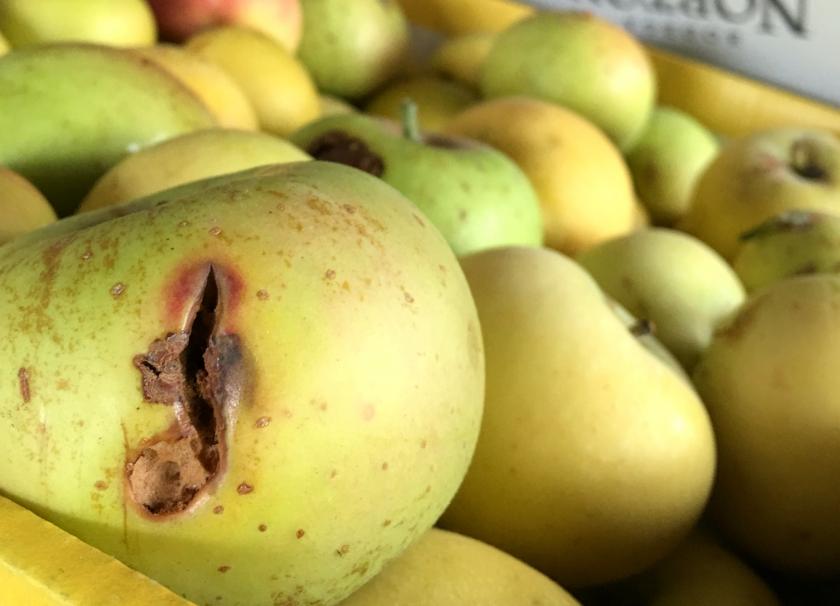
Your Fruit. Your Cider.
How often can you browse the shelf at your neighborhood grocery store, see a bottle of hand crafted, local cider and say, “Hey, I help make that!” Well, at the Co-op you can.
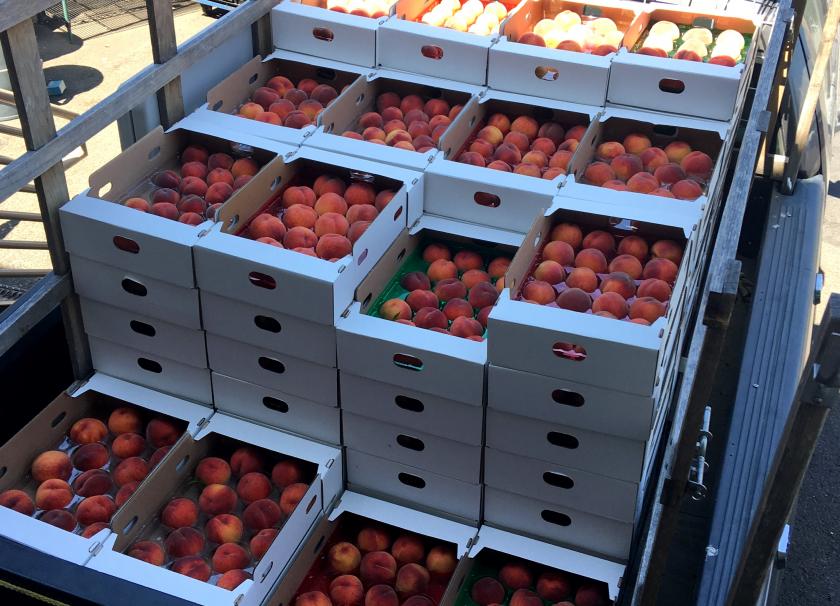
Millions of Peaches, Peaches for Me
By Laura Pfister, Media Coordinator
Many of us wait all year for this moment. We spend the winter months dreaming of a certain fuzzy stone fruit, its sweet juices dripping from our face and the buttery golden pie crust those yellow-orange slices will inhabit.
Good news! The wait is over. That local, sweet orb of sunshine has finally arrived. That’s right. Rolling Hills peaches are here!

2017 Board Election Results
We're Sustainability Stars!
Deep in our hearts we've always known we were sustainability stars, but now we have an award to prove it.
We recently received a Co+efficient Sustainability Star award from National Co-op Grocers (NCG) recognizing our positive environmental and community impacts.
Co+efficient, NCG’s sustainability program, measures social, environmental and local economic impacts from participating food co-ops across the country.
Give Where You Live
It’s the most wonderful time of year! Yes, we know that phrase is generally reserved for the holiday season. But for us, this truly is the most wonderful time of the year. It’s OUR season of giving.
Dine In and Bike Your Way to Savings
Did you know that approximately half of our landfill waste stream is composed of Deli trash? A significant part of that is “to-go” containers, which are sometimes used for dining in and don’t end up “going” very far at all.
Sustainability matters in everyday actions and we want you, our customers, to help us reduce unnecessary waste and make the most ecologically sound choices possible.

Participate in YOUR Co-op!
Spring Picks
The sun is (mostly) out and the weather is finally getting warmer. That must mean summer is right around the corner, right? We sure hope so. We’re ready to grill, soak up some sun and enjoy the many fruits and vegetables that are in season. Our Floral Coordinator, Rachel Chastain, shares some of her favorites.

Be the Sustainable Change
By Laura Pfister, Media Coordinator
Sustainability is not a new concept at the Co-op. It has always been part of our DNA. We’ve been using sustainable business practices before it was the “cool”, “responsible” thing to do. In fact, the Co-op was founded 45 years ago largely on the principles of sustainable, local organic food production as an alternative to modern industrial agriculture.

A New Look
By Laura Pfister, Media Coordinator
For 45 years we’ve been loving local and fostering community. Throughout our almost half a century history, our identity and logo has gone through many iterations.
Some of you might remember the logo above from our newsletter in the early 1980s.
As we’ve done multiple times throughout our history, it’s time to refresh our brand and launch a beautiful, new logo to take us into the next decade.

Turkey and Sweet Potato Chili
Turkey and Sweet Potato Chili is one of my favorite Co+op Basics recipes. It is full of flavor, color and shatters the myth that a healthy meal has to cost a fortune and take all day to prepare. This recipe is also a clever way to use sweet potatoes, which are not only tasty but high in fiber and vitamin A.
